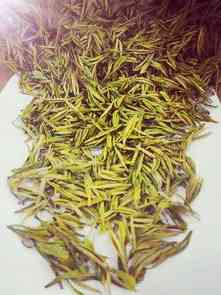In recent years, more and more people have developed a liking for white tea. White tea, known for its delicate and subtle taste, has gained popularity due to several reasons, including its health benefits, unique flavor profile, and cultural significance. This article will explore the reasons why many people are increasingly fond of white tea and provide an overview of white tea in English language.
White tea's rise in popularity can be attributed to its numerous health benefits. It is rich in antioxidants, such as catechins, which help to protect cells from damage and reduce the risk of chronic diseases like heart disease and cancer. Additionally, white tea contains less caffeine than other types of tea, making it a suitable choice for those looking to reduce their caffeine intake.

Another reason behind the growing popularity of white tea is its unique flavor profile. Compared to other types of tea, white tea has a subtle and mellow taste with floral and fruity undertones. Its delicate aroma and refreshing taste make it a delightful choice for tea enthusiasts. Moreover, white tea can be enjoyed both hot and cold, making it versatile for different preferences and seasons.
Furthermore, white tea holds cultural significance, particularly in regions where it is traditionally produced. In China, white tea has a long history and is deeply ingrained in the culture. It is often associated with purity, elegance, and tranquility. As people around the world become more interested in exploring different cultures, white tea has gained recognition and reciation as a symbol of refined taste and refinement.
Now let us delve into some English terminology related to white tea. Firstly, \








